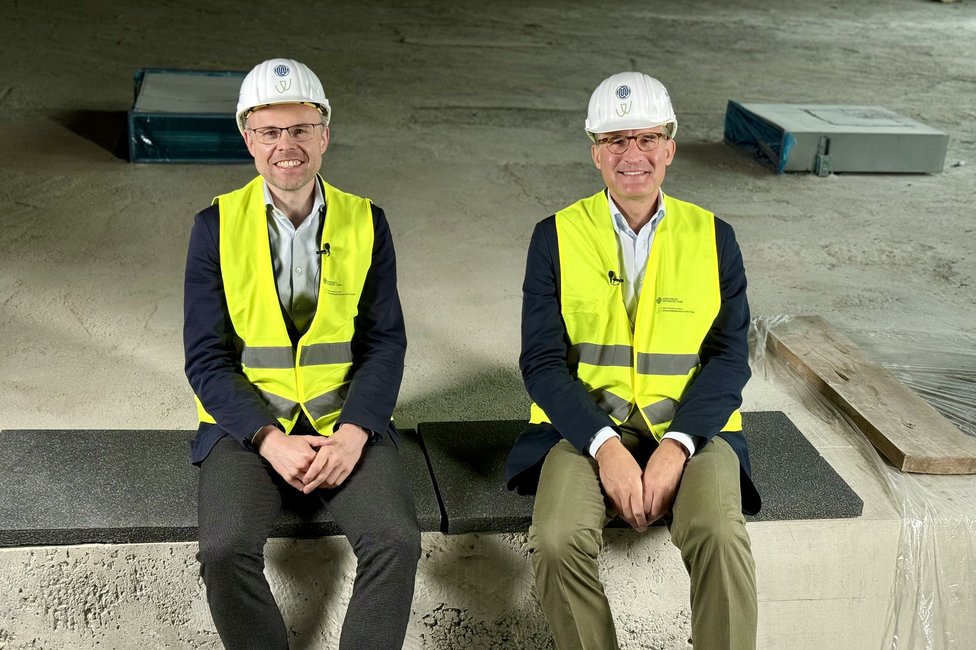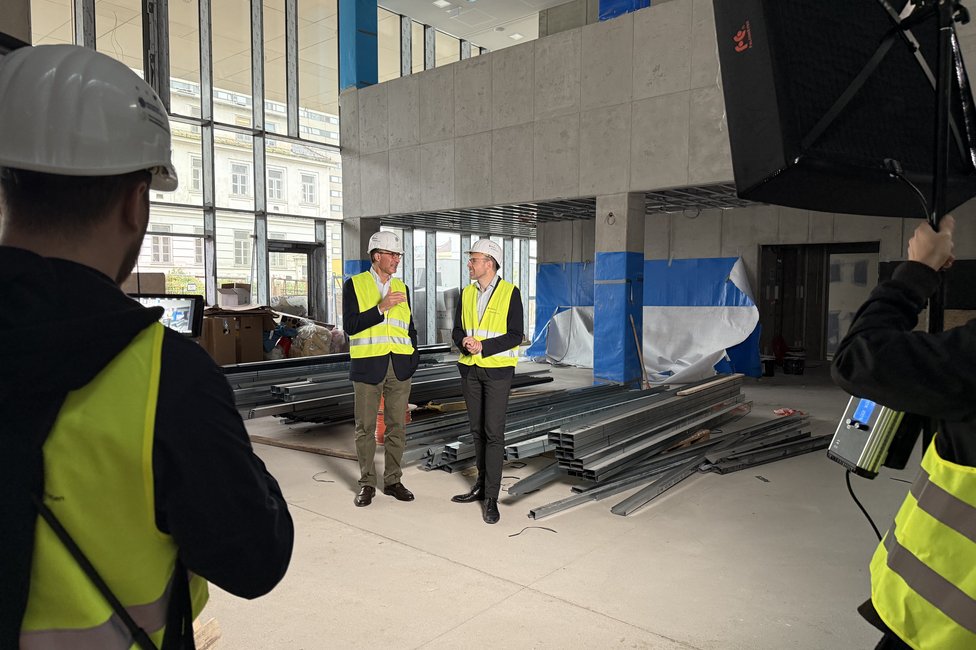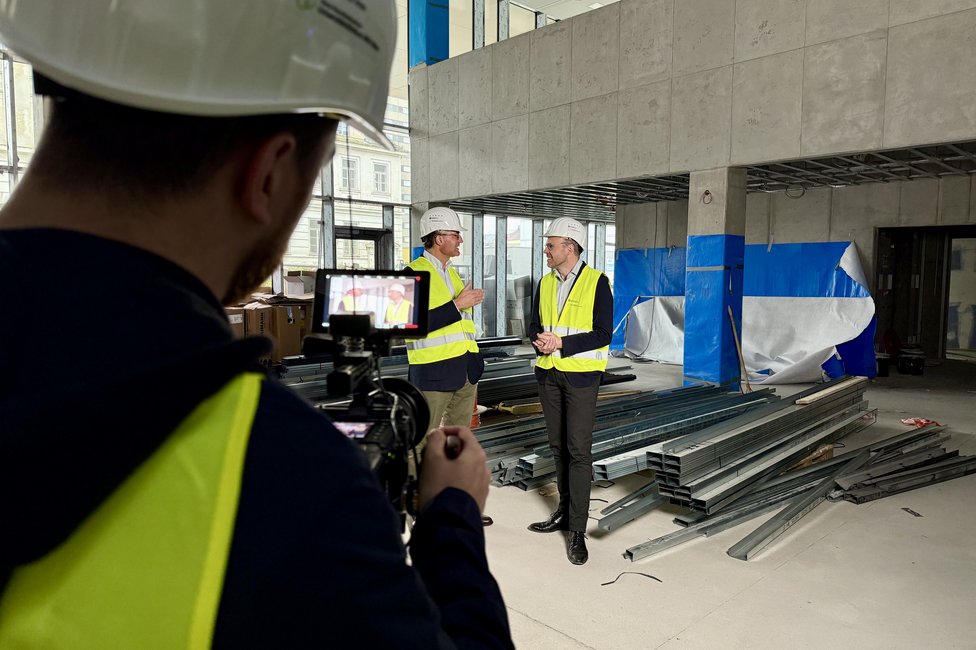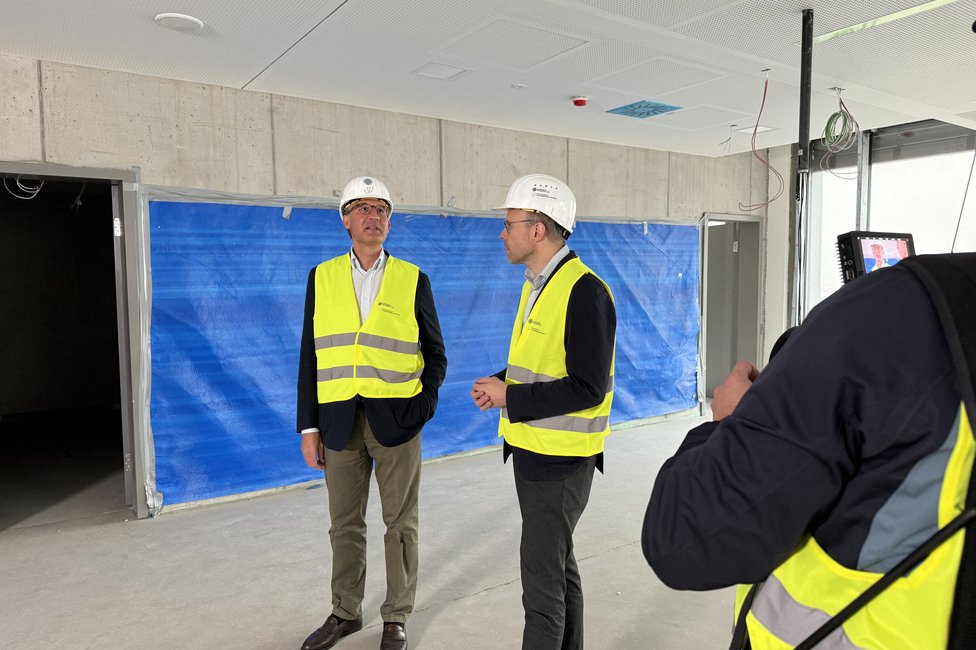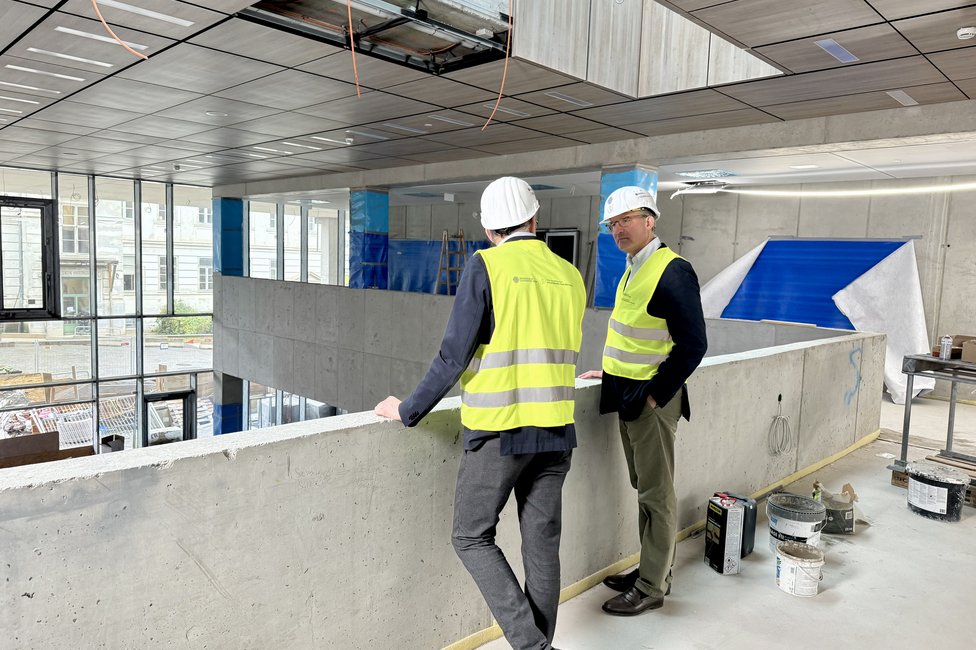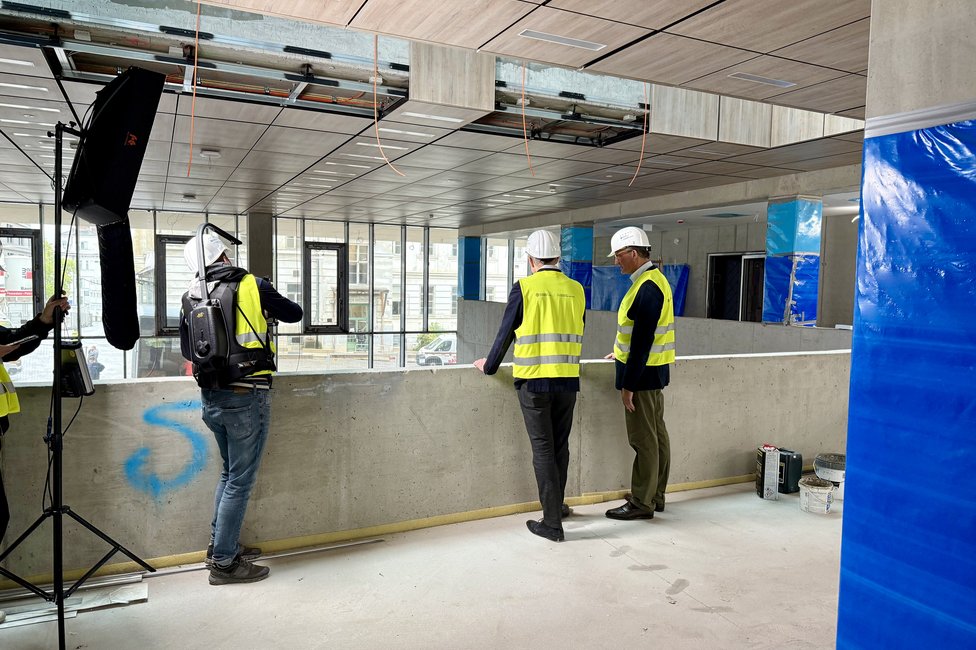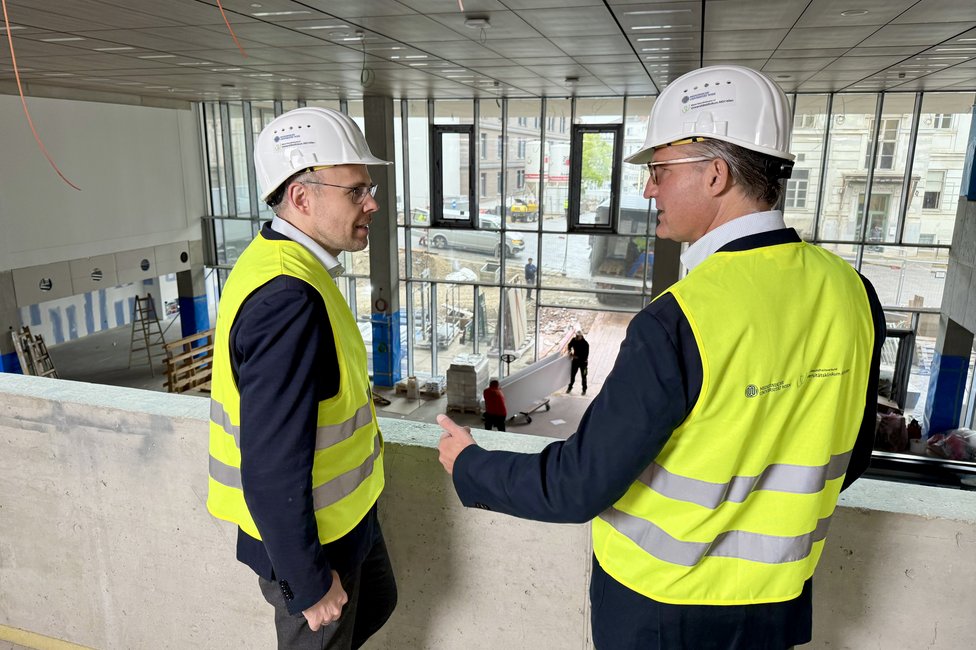The new buildings at MedUni Vienna offer ideal conditions for different disciplines to interact and for innovation to flourish. Laboratory physician Christoph Binder and AI specialist Christoph Bock talk about the new Centre for Translational Medicine, which is being built at MedUni Vienna and will be completed by 2026. Their vision: everyday encounters and high-tech infrastructure accelerate research, teaching and patient-oriented therapies.
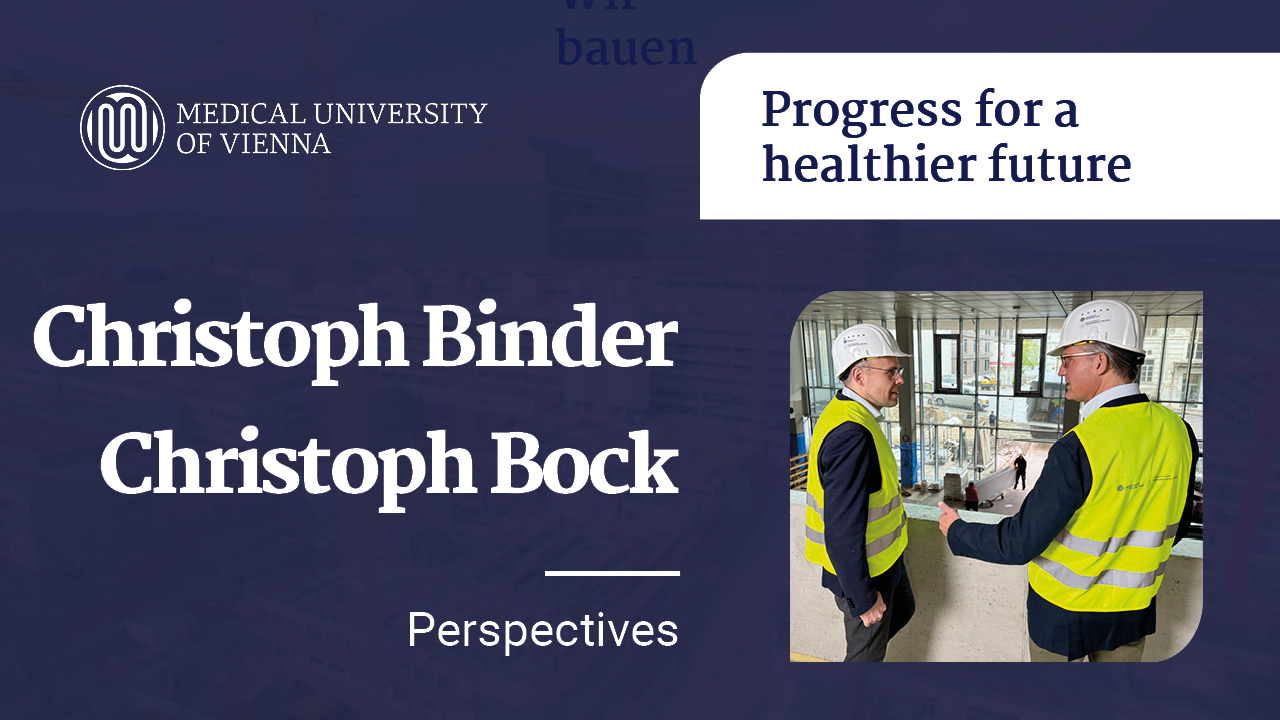
After activation, data will be sent to YouTube. Further information here: Data protection
At the new Centre for Translational Medicine (CTM) at MedUni Vienna, disciplines that were previously separated by invisible walls are now moving closer together.
‘Once these buildings are open, it will bring a significant advantage. On the one hand, we can take advantage of the geographical proximity and concentrate individual researchers here in one place. On the other hand, we can optimise cooperation with clinical research and other research buildings on campus,’ says Christoph Binder, Deputy Head of the Department of Laboratory Medicine.

‘One of the achievements of this building will be that we will be able to test therapies on patients much more quickly.’
‘Close collaboration between medical professionals conducting biological research and computer scientists who compile their data should lead to a new understanding of how diseases work and how future therapies can be designed,’ adds Christoph Bock, Head of the Institute of Artificial Intelligence (AI).
He sees the strength of the CTM in daily exchange and cooperation: ‘There will be both doctoral students conducting research and medical students who are still at the very beginning of their careers and for whom a scientific career may be only a distant option.’

‘Not only do we practise personalised translational medicine, we also teach it. And the best way to learn is by working together and involving students in research at an early stage.’
Everyday encounters will give rise to new ideas on how to better understand diseases and develop therapies. At the same time, the research should lead directly to clinical trials, with great potential for personalised medicine.
‘One of the great achievements will be to be able to test therapies directly on patients here,’ emphasises Binder. Teaching also benefits: modern lecture halls and seminar rooms make the CTM the university's calling card.
‘We don't just practise personalised medicine here, we also teach it,’ says Bock.
